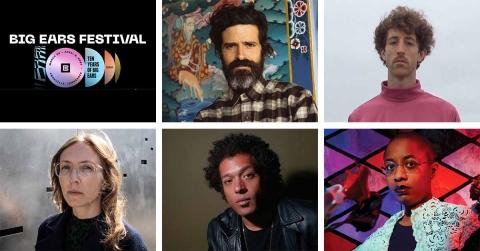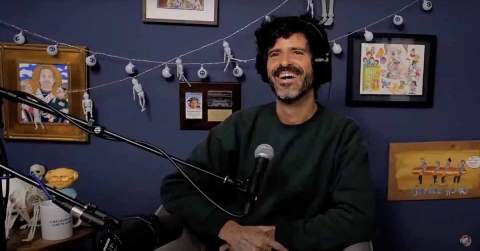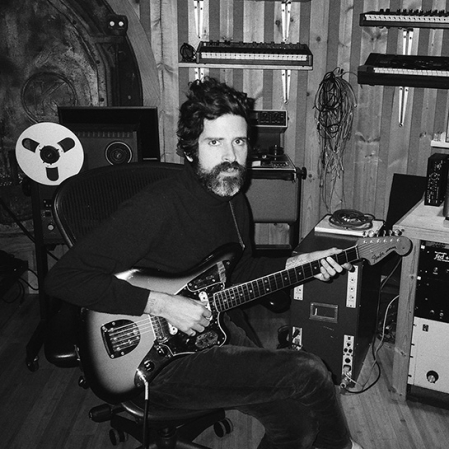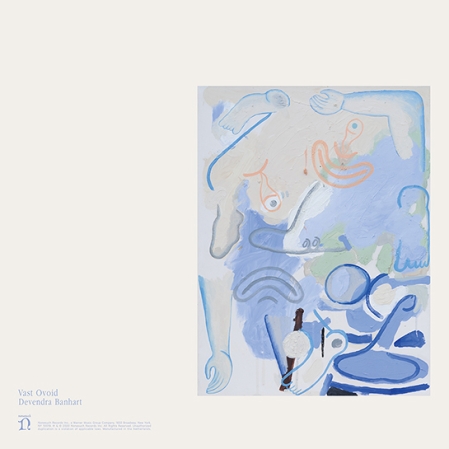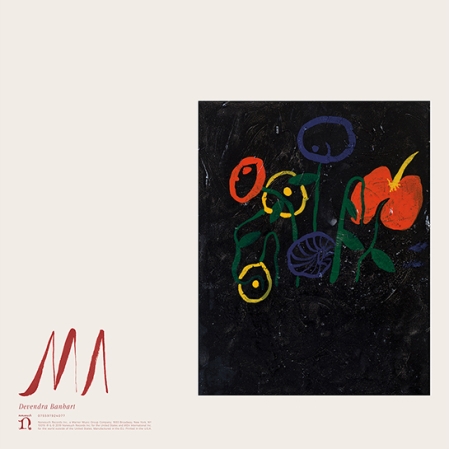Devendra Banhart's album Ma bursts with tender, autobiographical vignettes, displaying a shift from the sonic experimentation of his previous albums to an intricate, captivating story-telling and emotional intimacy. The album was produced by his longtime musical compadre Noah Georgeson and includes a background vocal from Cate Le Bon and a duet with Banhart's mentor, muse, and dear friend Vashti Bunyan. This is "sublimely understated, border-blurring folk rock," says the Los Angeles Times. "Banhart's singular world remains as intoxicating as ever," says Q. "It feels as if all of human life is here."
Devendra Banhart's new album, Ma, was released September 13, 2019, on Nonesuch Records. This is Banhart's first album since 2016's Ape in Pink Marble. Ma, bursting with tender, autobiographical vignettes, displays a shift from the sonic experimentation of his previous albums to an intricate, captivating story-telling and emotional intimacy. Banhart favors organic sounds to accompany his voice and guitar, the arrangements bolstered by strings, woodwinds, brass, and keyboards.
"Kantori Ongaku" translates from Japanese to "country music" and is a nod to experimental pop legend Haruomi Hosono, a founding member of the influential electronic band Yellow Magic Orchestra. The song's video features a full circle journey of vignettes that play on the dream-like quality of intimate activities. The video, colorfully directed by Giraffe Studios, also features guest cameos and a brief infomercial pleading for donations to the I Love Venezuela Foundation.
The simply titled Ma is Devendra Banhart's third album for Nonesuch, one that addresses—often in a beguilingly oblique way—the unconditional nature of maternal love, the desire to nurture, the passing down of wisdom, the longing to establish the relationship of mother to child, and the consequences of that bond being broken. Banhart doesn't approach the album's maternal theme in a literal way; rather, by contemplating it, alluding to it, regarding the concept of motherhood from different angles, he has fashioned an album of multiple, intertwining narratives. Its concerns are both personal and global, with subtly autobiographical looks at life and death and ruminations about the precarious state of the world. The many lighthearted moments of Ma are balanced by deeply melancholic, even somber ones. Three tracks are in Spanish, the language that is as much Banhart's native tongue as English, and one in Portuguese.
Banhart, who spent his childhood in Venezuela, has been profoundly affected by the poverty and despair he's witnessed there. His concern over the dire situation in his motherland drew him back to the Spanish language: "My brother is in Venezuela, my cousins, my aunts and uncles. They are just holding their breath, in gridlock standstill.There's this helplessness. This place that has been a mother to you, that you're a mother to as well, and it's suffering so much. There is nothing you can do but send out love and remain in that sorrowful state."
Working with Grammy Award–winning producer-musician and longtime musical compadre Noah Georgeson, the two started this particular musical journey when they were invited to record in a special room at a venerable old temple in Kyoto, after a short Asian tour. That served as a musical and spiritual prelude to what was to come. Back in California, they recorded at 64 Sound and Sea Horse Studios in Los Angeles and Anderson Canyon in Big Sur. Welsh singer-songwriter Cate Le Bon contributes background vocals on "Now All Gone" and Banhart's mentor, muse, and dear friend, the folk legend Vashti Bunyan, duets with him on "Will I See You Tonight." Notes Banhart, "Vashti is the archetype of the mother, one of the most important people in my life. It was so beautiful to sing this duet with her."
PRODUCTION CREDITS
Produced and mixed by Noah Georgeson
Mastered by Philip Shaw Bova
Engineered by Noah Georgeson, Tyler Karmen, Samur Khouja, and Jeremy Harris
Recorded at 64 Sound in Los Angeles, CA, Anderson Canyon in Big Sur, CA, Seahorse Studios in Los Angeles, CA, and Panoramic House in West Marin, CA
Paintings by Devendra Banhart
Design and layout by Osk Studio
All music and lyrics by Devendra Banhart except for “Abre Las Manos,” by Banhart and Georgeson, and “Taking a Page,” by Banhart and Carole King
599193
MUSICIANS
Devendra Banhart, guitar, vocals, temple bells, synth
Danny Bensi, violin, viola, cello
Amir Yaghmai, violin, viola
Greg Rogove, drums, percussion
Todd Dahlhoff, bass
Jeremy Harris, piano, flute, synth, drums, guitar, xylophone
Noah Georgeson, synth, electric guitar, backing vocals, guitar
Tyler Cash, piano, pianet
David Ralicke, saxophone, clarinet, bass clarinet, flutes
Andy Cabic, backing vocals
Josh Adams, drums, percussion
Jordan Katz, trumpet, french horn, flugelhorn
Cate Le Bon, backing vocals
Josiah Steinbrick, vibraphone, synths
Jordan Ralicke, flutes
Rodrigo Amarante, guitar
The Pacific Ocean, ocean sounds
Vashti Bunyan, backing vocals
String arrangements by Devendra Banhart, Danny Bensi, Amir Yaghma, and Noah Georgeson



